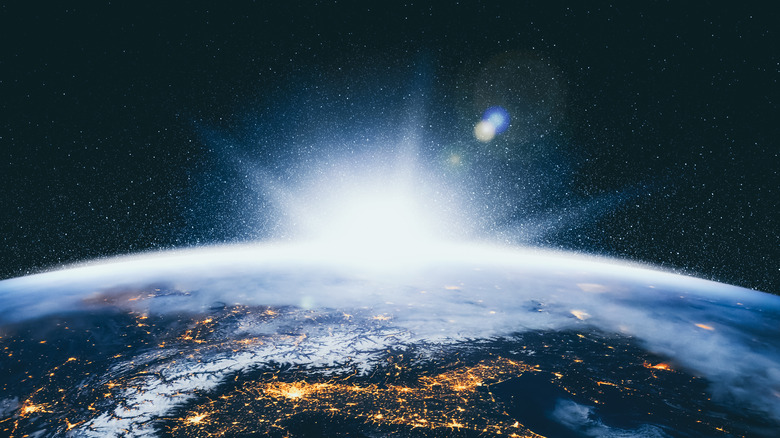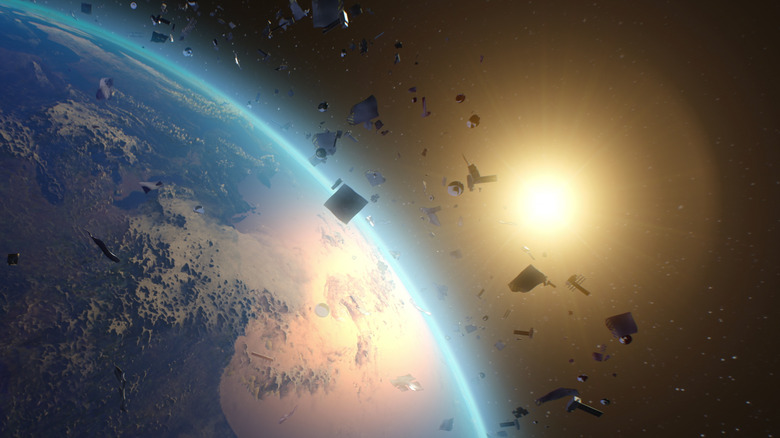This Is Why The Earth Doesn't Have Rings
Earth is a special place, known for its life-sustaining water, oxygen, and moderate temperatures. Yet it's an outlier — the only known planet for light years that can support human life. Our home planet is full of natural wonders and beauty that no others contain; it's completely unique among its counterparts in our solar system. But when gazing out into the universe through a telescope at Neptune, Saturn, Jupiter, or Uranus, you may find yourself asking why the Earth doesn't have rings too?
It turns out that those ring-having planets are not just somehow lucky but earned their rings through a variety of ways. While they are generally made up of combinations of dust, ice, and rock, the ways those factors combined could have happened in a number of ways — from a collision to the leftovers from a planet's formation coalescing into a new form, reports Mental Floss. But how did Earth miss out?
Earth had rings — but not in your lifetime
So to determine the answer, we need to look back billions of years to an earlier period in Earth's history. Simply put, the Earth did use to have a ring! Just like other planets, Earth's ring consisted of rock and ice. But over millions and billions of years, the detritus slowly combined together to form a jagged boulder about ¼ the size of Earth. We now know that boulder as the moon, located roughly 238,900 miles away from us.
According to Universe Today, scientists believe that eventually, the sun's red giant phase will exert an intense gravitational pull of will cause the orbit of the moon to break down. That would be really bad news for those future inhabitants of Earth because as the moon decays and fragments, it would create a new ring surrounding Earth, eventually experiencing enough drag that it would break apart and crash into the planet, forever changing what life would look like for humanity's future. But don't worry too much: this isn't expected to happen for billions and billions of years. For now, Earth has no ring — just a moon.

